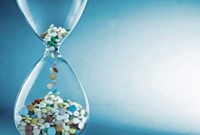Advertisement
Grab your lab coat. Let's get started
Welcome!
Welcome!
Create an account below to get 6 C&EN articles per month, receive newsletters and more - all free.
It seems this is your first time logging in online. Please enter the following information to continue.
As an ACS member you automatically get access to this site. All we need is few more details to create your reading experience.
Not you? Sign in with a different account.
Not you? Sign in with a different account.
ERROR 1
ERROR 1
ERROR 2
ERROR 2
ERROR 2
ERROR 2
ERROR 2
Password and Confirm password must match.
If you have an ACS member number, please enter it here so we can link this account to your membership. (optional)
ERROR 2
ACS values your privacy. By submitting your information, you are gaining access to C&EN and subscribing to our weekly newsletter. We use the information you provide to make your reading experience better, and we will never sell your data to third party members.
Pharmaceuticals
Debate Over The Cost Of Drugs
Drug Pricing: How Martin Shkreli became the symbol of the widening controversy in 2015
by Rick Mullin
December 7, 2015
| A version of this story appeared in
Volume 93, Issue 48
Controversy, debate, and confusion over the price of drugs had a profound impact on the pharmaceutical sector in 2015.

At the start of the year, some eyes were on the high price of Gilead Sciences’ Sovaldi and its follow-on treatment, Harvoni, which offer a cure to many hepatitis C patients. But by the fall, many more eyes, including some in Congress and on the presidential campaign trail, riveted on drug prices when the actions of Martin Shkreli, a hedge fund manager and chief executive officer of Turing Pharmaceuticals, went viral on social media and news outlets.
Young and cocky, Shkreli managed to make himself the poster boy for drug company avarice when Turing obtained the rights to Daraprim, a well-established treatment for a parasitic infection, and jacked up the price by 5,000% to $750 per pill. The blogosphere, talk radio, and television news gave Shkreli more than the proverbial 15 minutes of fame as he found himself in dustups with everyone from online business editors to Sen. Bernie Sanders (D-Vt.), a presidential candidate.
And the attention aimed at Shkreli bounced in the direction of mainstream drug firms, Valeant Pharmaceuticals in particular. The full Democratic bench of the House Committee on Oversight & Government Reform last month requested that Valeant’s CEO, J. Michael Pearson, be subpoenaed to testify along with Shkreli at a hearing on drug prices. The topic was the price of Valeant’s Isuprel and Nitropress, heart drugs whose prices were increased by more than 500% and 200%, respectively.
But a Senate committee, prompted by the price tag on Sovaldi, had already held a hearing on drug prices in 2014. And a less flashy but more crucial confrontation had been raging all year between drug and insurance companies as the justification for drug prices shifted from compensation for the money spent on research to up-front reimbursement of the money new drugs are likely to save the health care industry over the coming years.
The focus on the highest-priced drugs has changed the industry, according to Michael Kleinrock, a health care industry analyst at IMS Health. “To me, the most compelling thing about 2015 was how many truly amazing new medicines were launched, made available, and questioned on their value,” he says.
In addition to the hepatitis C drugs, the year saw lipid-lowering PCSK9 inhibitors and breakthrough immunotherapies hit the market. “The question is not, ‘Wow, isn’t it amazing that there is a functional cure for hepatitis?’ or, ‘Aren’t we doing really amazing things with the immune system?’ ” Kleinrock reflects. “The question is, ‘How can I afford it?’ ”
In general, prices actually have been experiencing normal growth, according to Kleinrock. But the Shkreli sideshow spun into December with an announcement by pharmacy benefits management firm Express Scripts that it will cover a $1.00 alternative to Turing’s Daraprim from Imprimis Pharmaceuticals.
Patient advocacy groups do not view extremely high priced drugs as outliers. David Evans, director of research advocacy at Project Inform, a group that advocates for hepatitis C and HIV patients, told C&EN earlier this year that Sovaldi and its ilk are viewed by patient groups as the first in a wave of high-tech, high-cost drugs. Advocates are also wary of the fallout from battles between drug companies and payers for drugs that promise cures.
“We have a tremendous fear that the giants involved in this battle are going to try to crush each other to the harm of people with those diseases,” Evans said.





Join the conversation
Contact the reporter
Submit a Letter to the Editor for publication
Engage with us on Twitter